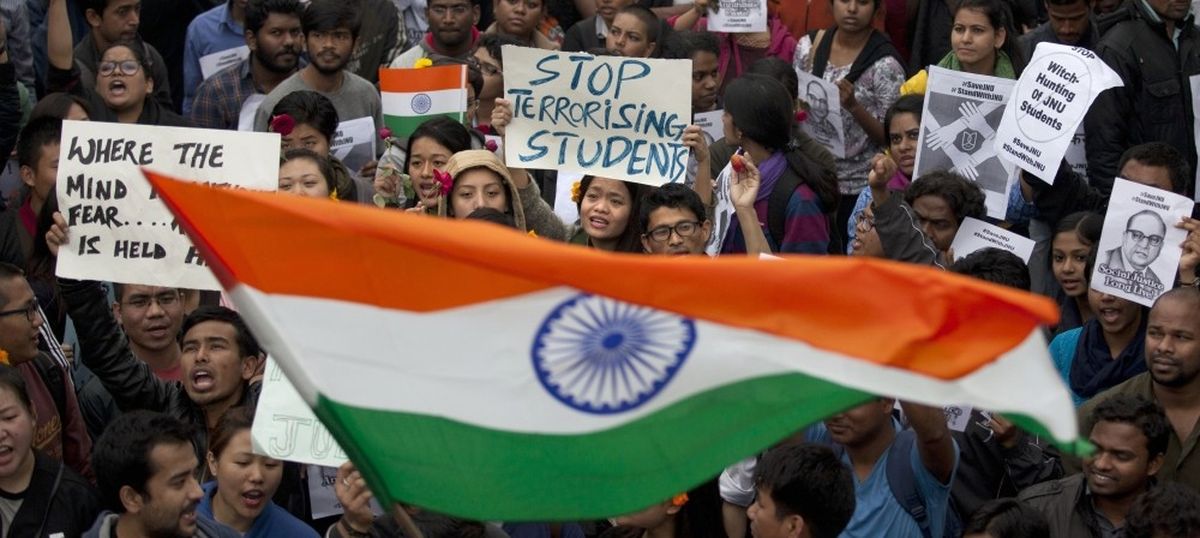
“On October 7, the two employees, Saurav Goswami, deputy manager of academic affairs, and Adil Mushtaq Shah, programme manager of academic affairs, of the Young India Fellowship sent farewell emails,” the report said. “Although they quit on personal grounds, many on campus say the management had made its ‘displeasure’ known to them after the petition went public.”
Since the issue now hinges on that familiar terrain of freedom of expression, I will preface the following paragraphs with this: free speech does not amount to consequence-free speech. There are consequences to every action. The question is whether those consequences are reasonable and conducive to lively debate in a free society.
Kashmir has seen many casualties this summer and a lively debate is unfortunately one of them. The petition floated in July within the Ashoka University email listserv condemning the State violence in Kashmir has seen many internecine arguments among the campus community as well as the alumni. Understandably, there were opposing viewpoints. In the long email thread that followed the first draft of the petition, several students and alumni legitimately questioned the lack of a wider consensus and pressed for a detailed conversation. But the group of students who were driving the petition dismissed those concerns and asked only those who agreed to sign it. Eventually, 88 people signed the petition, including the two staff members.
The petition was published online on July 25. Once it got picked up and misrepresented by a few Pakistan-leaning blogs, all hell broke loose. The university hastily convened a governing body meeting on July 27 and issued a terse statement barring anyone from using the “good name of the university” and condemning the students for their behaviour. It was so disappointing to see a university throw its students under the bus at the first hint of trouble. Upholding the university’s name at the expense of (some) students is not that different from upholding the national interest at the expense of (some) people. Students, and people, by definition, are flawed. Even if mistakes were made in how the petition was drafted or circulated, responding to that with a public denouncement reeks of overreach (especially because the petition clearly stated the views were held by the students and was not the position of the university).
While many thought it would stop there, a few months later came the resignations. To target two staff members without resorting to due process seems unduly punitive.
Parallels everywhere
In any case, since Pakistan gets dragged in every time anyone speaks of Kashmir, it is instructive to look across the border where a similar debate on free expression is raging. Just this week, The Nation published a daring editorial defending Dawn journalist Cyril Almeida, who has been barred from leaving the country after publishing a story about an unusual exchange between the civilian and military brass on possible action against Lashkar-e-Taiba founder Hafiz Saeed.
“Apparently a barrage of online abuse and three official denials were not enough to assuage tempers riled after Mr Almeida’s exclusive story in Dawn,” the editorial read. “How dare the government and military top brass lecture the press on how to do their job. And how dare they imply that they have either the right or the ability or the monopoly to declare what Pakistan’s ‘national interest’ is.”
The parallels are remarkable. Both countries are fighting over a national interest devoid of the people. Ashoka University has a lot to answer for if it indeed did succumb to such pressure. For though there has been a litany of concerns about the university – from the fee structure to the rights of contract workers on campus – it is undeniable that attempts have been made to build a lively, thriving and questioning atmosphere that encourages independent inquiry. The events of this week set an uncomfortable precedent.
So, today, I stand in solidarity with the two employees who have been forced to resign for having an opinion, however unpopular it might have been. But I also stand in solidarity with Ashoka University, which, if events as they have been reported are accurate, has evidently come under immense pressure.
We live in a profoundly divided country where politiciking has replaced politics, where even issues of national consequence are viewed through the lens of party politics. The university is perhaps one of the few spaces left for nuance, for complexity, for disagreements. It is worth defending every last inch of that space.
Ultimately, this is not about Ashoka. It is about India. It is about the price one has to pay as a citizen of this country for having the integrity to hold on to a differing opinion.
That great paragon of liberalism, Ronald Reagan, once said: “Freedom is never more than one generation away from extinction.” It is important to keep that in mind as a heavy price is constantly extracted out of those around us who dissent against the dominant opinion of the day – whether it is the employees of Ashoka University who were allegedly asked to resign or the farmers in Hazaribagh who have been shot at for protesting against land acquisition.
The least we can do as a society is to honestly ask ourselves this question: Are they being made to pay too high a price? And how long can we sit silently as a friend, a staff member in a college, a writer, an artist or an academic is silenced?
The writer is a former reporter with The Hindu and a Young India Fellow from the Batch of 2016.
This article was first published on Scroll.in